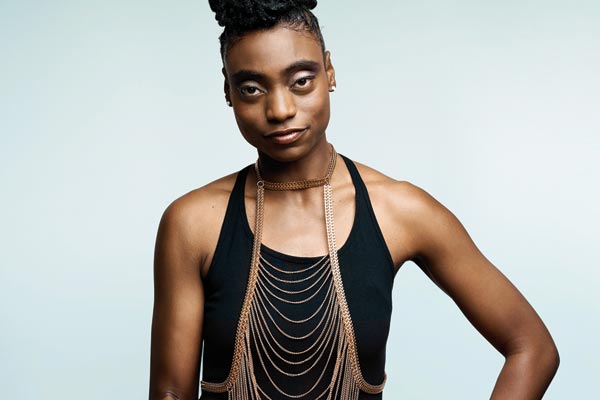When New York saxophonist Lakecia Benjamin comes to Australia in November for Sydney International Womens Jazz Festival (SIWJF), it will be only her second time in the country and her very first ever as bandleader.
“To me it's a highlight,” Lakecia says of the opportunity to lead her own ensemble. “You spend so much time learning and practicing and really honing your craft, but when you become a bandleader you really get to express your views on things and your thoughts.
“When you're playing with someone else you're building their dream and their vision. . . When it's your own music you get to control the room, you get to control how you express things to the audience, just put your take on things. The band is following your lead and your command, and you're setting the tone for the whole performance.”
Asked what dream and vision she hopes to build as bandleader, Lakecia emphasises the importance of having her music connect with people. “For me, I'm always hoping that whatever I'm doing is conveying a message to someone,” she says.
“I'm very concerned that my music has some kind of emotional impact on people, that it's able to at least uplift them in some way or to help them get through whatever they're going through. So it's my goal that whatever performance I do – whether you hate it or love it – that you feel something during the show, that I have connected with you in some type of way.”
Lakecia brings that search for connection to SIWJF this November where she'll play with her own quartet as well as with ten-piece Sydney female jazz ensemble Pharos fronted by Hannah James.
“I'm coming as a special guest of musicians already there, and we're coming up with some collaborative music,” Lakecia says.
“I'm deciding at this point which music I'll have the musicians play because the musicians backing me are all Australian, so we will have to work together.”
Lakecia says that although she isn't nervous about performing with unfamiliar musicians, she is expecting to encounter some cultural differences between how she and her Australian counterparts interpret the music.
“I'm not nervous because I believe that whatever is going to happen is going to happen, and I have faith in the talent level, but it is different because the way I approach funk music may be different than someone from a different culture,” she says.
“We have a different stylistic thing and in how we feel the beat, so we'll have to come to some kind of consensus of where things are going to be. It doesn't have to be the same as it always is, it can be its own experience and as long as you have talented musicians who are open to playing your music as well, it should be fun.”
Sydney International Womens Jazz Festival runs 2-17 November.

